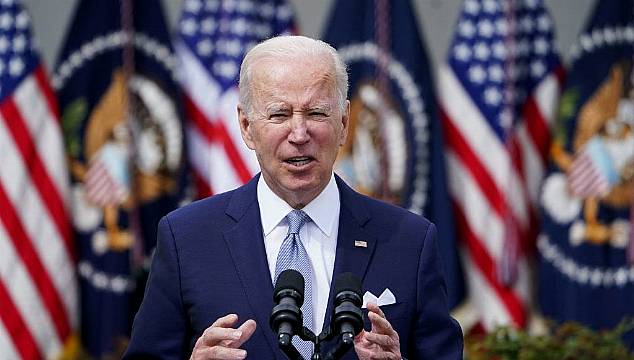Washington and Kyiv are accusing Russia of genocide in Ukraine, but the ultimate war crime has a strict legal definition and has rarely been proven in court since it was cemented in humanitarian law after the Holocaust.
What is genocide?
The 1948 Genocide Convention defines genocide as crimes committed "with intent to destroy, in whole or in part, a national, ethnical, racial or religious group, as such."
Three cases so far have met international courts' threshold: the Cambodian Khmer Rouge's slaughter of minority Cham people and Vietnamese in the 1970s, who were among an estimated 1.7 million dead; the 1994 mass killing of Tutsis in Rwanda that left 800,000 dead; and the 1995 Srebrenica massacre of some 8,000 Muslim men and boys in Bosnia.
Criminal acts comprising genocide include killing members of the group, causing them serious bodily or mental harm, creating conditions calculated to destroy them, preventing births, or forcibly transferring children to other groups.
What must prosecutors do?
To establish genocide, prosecutors must first show that the victims were part of a distinct national, ethnic, racial or religious group. This excludes groups targeted for political beliefs.
Genocide is harder to show than other violations of international humanitarian law, such as war crimes and crimes against humanity, because it requires evidence of specific intent.
"Genocide is a difficult crime to prove. Parties have to bring a lot to the table," said Melanie O'Brien, president of the International Association of Genocide Scholars. She cited the combined requirement of showing intent, the targeting of a protected group, and crimes like killings or forcibly removing children.
The International Criminal Court opened an investigation into alleged war crimes and crimes against humanity in Ukraine in February. It also has jurisdiction over genocide.
Ukrainian prosecutors, already investigating alleged Russian crimes since the 2014 annexation of Crimea, said they have identified thousands of potential war crimes by Russian forces since Feburary 24th and compiled a list of hundreds of suspects.
Who is accusing Russia?
Ukrainian President Volodymyr Zelenskiy and U.S. President Joe Biden have both accused Russian soldiers of genocide, focusing on evidence of rape, torture and killings in areas around Kyiv recaptured this month by Ukrainian troops.
"Yes, I called it genocide because it has become clearer and clearer that (Russian President Vladimir) Putin is just trying to wipe out the idea of being able to be Ukrainian and the evidence is mounting," Biden said.
British Prime Minister Boris Johnson said last week that the scale of atrocities "doesn't look far short of genocide."
Moscow, which called the attack against its smaller neighbour "a special operation" to halt genocide against Russian speakers in Ukraine, says the West has faked evidence to smear its army.
The U.S. administration has declared seven situations genocide since the 1990s: Bosnia, Rwanda, Iraq, Sudan's Darfur province, Islamic State's killings including against the Yezidi, the crackdown on Rohingya Muslims in Myanmar and the treatment of Uyghur Muslims in China.
What cases are happening now?
The International Criminal Court previously issued an arrest warrant on charges of genocide against former Sudanese President Omar al-Bashir, but his trial cannot begin until he is in custody in The Hague.
The International Court of Justice also has jurisdiction over the Genocide Convention, the first human rights treaty adopted by the U.N. General Assembly in 1948, stating the international community’s commitment to prevent the atrocities of World War Two from ever happening again.
It is hearing two cases: one claiming Myanmar committed genocide against Rohingya Muslims, the other brought by Ukraine to argue that Russia is using accusations of genocide as a false pretext for invasion.
Such cases generally take years to reach a verdict.
Past cases
The International Criminal Tribunal for Rwanda convicted dozens of senior officials, all of them Hutus, of genocide against Tutsis.
When former Rwandan Mayor Jean-Paul Akayesu was found guilty of the crime in 1998, the court became the first international tribunal to interpret the definition of genocide set forth in the 1948 Genocide Convention.
In 2018, a hybrid U.N.-Cambodian tribunal found two leaders of Cambodia’s Khmer Rouge guilty of genocide following years of debate about whether the "Killing Fields" constituted genocide. The judges ruled that the Khmer Rouge had a policy to target Cham and Vietnamese people to create “an atheistic and homogenous society".
The International Criminal Tribunal for the former Yugoslavia convicted several key figures of genocide for their roles in the Srebrenica killings during the Balkan wars of the 1990s.
They include wartime Bosnian Serb military commander Ratko Mladic and Bosnian Serb political leader Radovan Karadzic. Former Yugoslav President Slobodan Milosevic died in custody before his genocide trial concluded.







